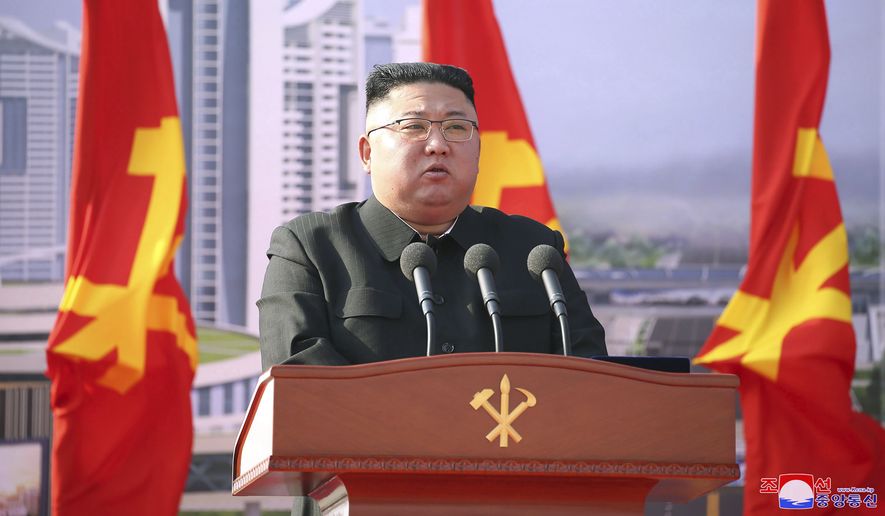North Korea on Wednesday escalated its provocations toward the Biden administration and U.S. allies in Northeast Asia by launching two ballistic missiles into the sea between the Korean Peninsula and Japan.
The regime of North Korean leader Kim Jong-un fired the missiles roughly 24 hours after the Biden administration had sought to downplay a pair of previous launches that U.S. officials say the regime carried out last weekend.
There was no immediate reaction from the administration to Wednesday’s launches.
South Korean officials said the launches originated from North Korea’s eastern South Hamgyong Province and occurred early in the morning. A report by South Korea’s Yonhap News Agency said North Korea fired “two unidentified projectiles.”
Yonhap quoted a South Korean military statement as saying “further information is under analysis by South Korea-U.S. intelligence authorities.”
“Our military is keeping a staunch readiness posture under a close South Korea-U.S. coordination with heightened monitoring and security,” the statement said.
U.S. officials later confirmed the launches to U.S. news organizations.
The North Korean provocations come amid uncertainty over the Biden administration’s strategy for dealing with the Kim regime. Administration officials say they are engaged in a careful review of U.S. policy toward North Korea.
During the Trump era, the U.S. pushed for a major denuclearization deal with the Kim regime. The effort saw President Trump engage in multiple historic summits with Mr. Kim, but ultimately failed to produce an agreement.
Denuclearization talks have been stalled for more than two years while the North Korean regime is believed to be making advances on nuclear weapons development in violation of decades of U.N. Security Council resolutions.
Analysts say it’s highly unlikely that Mr. Biden will pursue the kinds of high-stakes direct meetings with Mr. Kim that Mr. Trump favored. The new administration is instead expected to return to the policy of so-called “strategic patience” embraced during the final years of the George W. Bush administration and throughout the Obama era, when Mr. Biden was vice president.
The approach will likely revolve around efforts to continue isolating Pyongyang through U.S. and United Nations sanctions, while taking care to avoid rewarding the Kim regime with any major diplomatic overtures.
Jean Lee, who heads the Korea Program at The Wilson Center in Washington, said Wednesday’s missile launches suggest North Korea is “returning to a familiar pattern of using provocations to raise tensions and garner attention.”
“We had been bracing for North Korean provocations early in the Biden presidency, in keeping with past patterns,” Ms. Lee said in comments circulated to reporters. “Until now, North Korea had been exhibiting restraint, perhaps waiting for the Biden Administration’s Korea policy.”
“However, it has become very clear over the past week that Washington will take a very different approach under Joe Biden,” she added. “Rather than summit diplomacy, I think we can expect sanctions diplomacy.”
• Guy Taylor can be reached at gtaylor@washingtontimes.com.




Please read our comment policy before commenting.